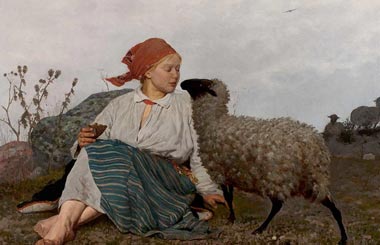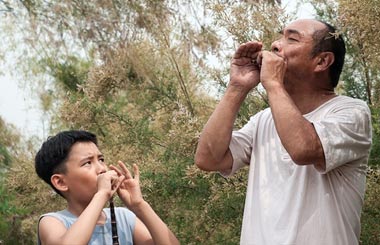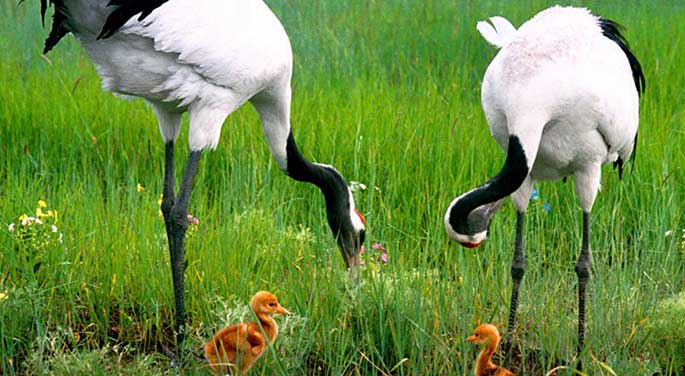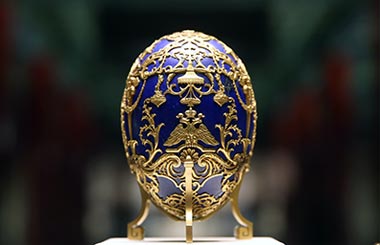Pride of the peacock
By Pauline D. Loh ( China Daily ) Updated: 2012-11-16 09:26:42China's most famous dancer is touring the country with her latest production, Peacock, in what many say is a farewell performance. Pauline D. Loh looks back and looks at what the future holds for Yang Liping.
Related: Cai Qi takes her time
 |
 |
Yang Liping has done more for folkdance in China than anyone before her. She has taken it from grassroots origins to international stage and in the process, given new life and resurrected interest to what could have been a dying art.
All her past productions have been visually inspiring, heart-thumping shows that often leave the teary-eyed audience cheering on its feet, wildly applauding long after the final curtain falls.
People leave the theater with the image of the peacock princess seared on their minds, marveling at her artistry and talking about her impossibly fluid moves on stage. They also admire her commitment as a mainly self-taught artiste who has nurtured a generation of raw young talents handpicked on her travels to remote villages in her relentless research on primeval music and dance forms.
She is undoubtedly recognized as a consummate artiste of almost deified status, an advocate of ethnic art in both music and dance.
But at 54, she has decided it is time to find another platform for her talent, and most people interpreted that as meaning she will do more directing and choreography backstage in her continued efforts to promote the best of China's folkdance forms.
That is why it was unsettling that her widely publicized "farewell performance" was so oddly experimental. Many had expected her to gather the highlights of an illustrious career and present these to her fans in one grand final gesture.
Instead, Peacock is a dance drama veering on the abstract, full of symbolic representations such as a hoary mountain spirit and a constantly spinning Time.
There were gilded bird-cages and an introductory spiel on freedom, a pair of peacock lovers flirting and a covetous raven. They were joined by some weirdly familiar characters that look as if they had escaped from other genres, like the white-draped spirit from the Japanese animation classic Spirited Away, and the vengeful tree army from The Lord of The Rings.
These must have puzzled those among the audience who had eagerly anticipated more of Yang's individual artistry and had come to pay her homage. They would have remembered her signature Dynamic Yunnan productions and they were probably expecting more of the same.
They would have paid just as dearly this time as always, perhaps even more. Tickets for Peacock were not cheap and would have cost a third or at least a quarter of what the average Chinese blue-collar takes home.
While I personally applaud Yang for her courage in bringing her art to another level, I was unsure about her timing and could not help being a little disappointed - a feeling I am sure is shared by many.
Sadly, the most telling moments of the entire evening at the National Center for the Performing Arts in Beijing were when I heard an unmistakable snort from a gentleman in the row behind me who had fallen asleep mid-performance, and a comment I heard from another, a few seats away, at the end.
As he got up, stretching, he told his wife: "I just realized that spinning thing at the corner is a live person!"
He was referring to Time, the relentlessly gyrating role played by Cai Qi, Yang's 13-year-old niece. The young dancer, dressed in circles of white, had been quietly spinning under a tree at a corner of the stage, representing time as it rotated through spring, summer, autumn and winter.
In all, Cai Qi would have made more than 3,000 turns nonstop in the two-hour production. Needless to say, she got the loudest cheers at curtain call. Even her aunt admitted that the young lady's ability to spin without getting dizzy is an amazing gift, one they discovered when she was only a toddler of 3.
Yang definitely had her moments on stage, especially when she performed her famous peacock dance solo, and again when she danced with partner Wang Di in the newly choreographed Peacock Lovers pas de deux.
That was what the audience came for, and they showed their appreciation loudly.
But their response at the final curtain may have been disappointing to Yang and her production team, which has a multimedia effect designer from Hong Kong and a production consultant from Australia. While they clapped politely and loud, there was none of the exuberance shown at her previous performances.
Perhaps we all need time to get used to the new directions Yang Li-ping intends to follow.
While no one can challenge her supremacy in interpreting and capturing the raw appeal of grassroots dance forms on stage and weaving them into a cohesive whole, there are many who could have done what she did this time, but better.
Yang will probably find she is on a steep learning curve here, which is not a bad thing. We are all motivated by new challenges and at least we know all about her unswerving determination and devotion to her art.
|
|
|
|
|
|
|
|
























 Raymond Zhou:
Raymond Zhou: Pauline D Loh:
Pauline D Loh: Hot Pot
Hot Pot Eco China
Eco China China Dream
China Dream China Face
China Face





